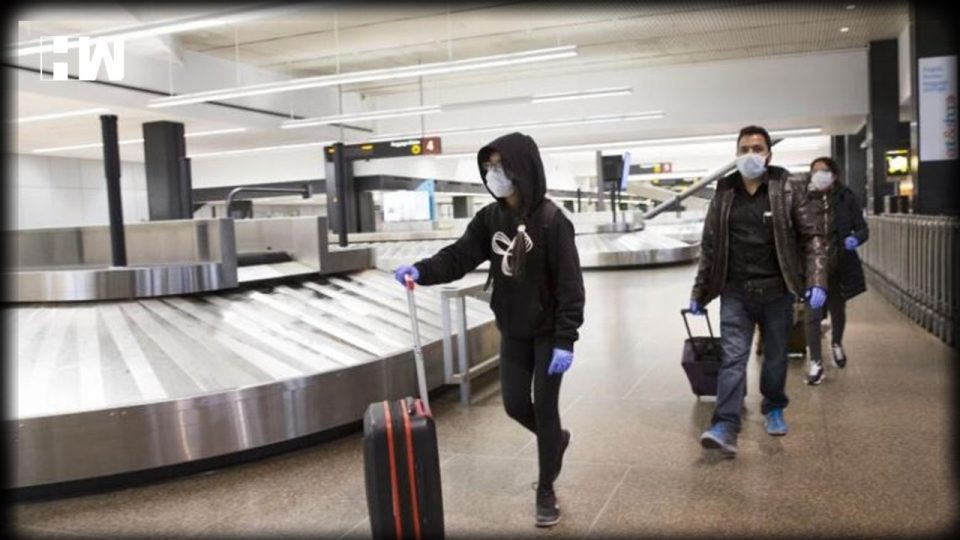New Delhi : India reported 9,765 new coronavirus infections in a day, India’s total tally of COVID-19 cases rose to 3,46,06,541, while the active cases increased to 99,763, according to the Health Ministry data updated on Thursday.
During the same period, 8,548 recoveries were reported throughout the country. With this, the national recovery rate currently stands at 98.35 per cent. The active cases in the country stood at 99,763 or 0.29% of the total cases.
The number of deaths climbed to 4,69,724 with 477 fresh fatalities including, 403 from Kerala, according to the data updated at 8 am.
New Covid variant, ‘Omicron’ which has been declared as a variant of concern by the World Health Organisation (WHO) has raised concerns across the globe. The variant was first detected in South Africa earlier this month. Since then, the new strain has already been detected in several European countries . ‘Omicron’ is said to be much more infectious than the Delta variant.
Health Minister Mansukh Mandaviya will meet state and UT officials to review Covid testing and surveillance measures at international airports. India yesterday enforced strict rules for foreign arrivals, particularly from nations with Omicron cases.
Today’s meeting comes after a day of long queues and lengthy waiting times for Covid test results at international airports, as well as uncertainty over testing and quarantine protocols in Maharashtra, which announced a more stringent set of rules than that by the centre.
Maharashtra had directed all foreign arrivals to take RT-PCR tests. Passengers from ‘at risk’ nations had to undergo seven days’ institutional quarantine with three self-paid tests. Others had to return a negative test on arrival and then faced 14 days’ home quarantine. The state also directed domestic fliers (those from other states) to hold a negative PCR test dated to within 48 hours of travel.
These rules were challenged by the centre, which has urged Maharashtra to “align with orders issued by the Ministry of Health and Family Welfare” to ensure uniform implementation of rules. However, Maharashtra Minister Aaditya Thackeray last night told NDTV the state needed to be careful because it had been hardest hit by Covid.
Nevertheless, last evening Maharashtra revised testing and quarantine regulations for international passengers – from countries ‘at risk’ and others. Mandatory institutional quarantine for those from ‘at risk’ countries was deferred till 12 am Friday (i.e., midnight today). A further revision is expected today.
The rule requiring domestic passengers to hold negative RT-PCR tests dated to within 48 hours of the journey remains in place at this time, despite the centre’s disapproval. Under existing central rules, fully vaccinated domestic travellers need not carry negative tests.
Under guidelines announced by the centre, from yesterday all passengers from ‘at risk’ countries have been tested for COVID-19 on arrival. They must return a negative result to leave the airport. Two per cent (selected at random) of arrivals from other countries are also being tested. They can leave before the result is declared.
The new rules led to long queues and chaos at airports in Chennai, Mumbai, Delhi and Bengaluru, where incoming foreign passengers had to line up (and pay) for Covid tests. Passengers opting for the antigen test had to wait for 2.5 to three hours, while those taking the PCR test had to spend nearly six hours. This was in addition to completing customs and immigration formalities.
Maharashtra and Delhi have both announced six Covid cases each among travellers returning from ‘at risk’ countries, including South Africa, which is where the Omicron variant was first detected. The variant infecting these 12 travellers is not yet known; their samples have been sent for genome sequencing. A passenger returning from South Africa and two family members tested positive in Chandigarh.
On Tuesday the Health Minister told Parliament India has yet to report an Omicron Covid case. The centre has said existing tests can pick up the variant (based on the presence of a certain gene), but the WHO has said this is not a definitive criterion and samples must be sequenced for proper identification.
As of November 26, the ‘at risk’ countries are those in Europe, South Africa, Brazil, Botswana, China, Mauritius, New Zealand, Zimbabwe, Singapore, Hong Kong, and Israel. Of these, some European countries (including the UK, Germany, Spain and Belgium), South Africa, Israel and Hong Kong have confirmed Omicron cases, as does Japan. The United States today confirmed its Omicron Covid case.
As an independent media platform, we do not take advertisements from governments and corporate houses. It is you, our readers, who have supported us on our journey to do honest and unbiased journalism. Please contribute, so that we can continue to do the same in future.

